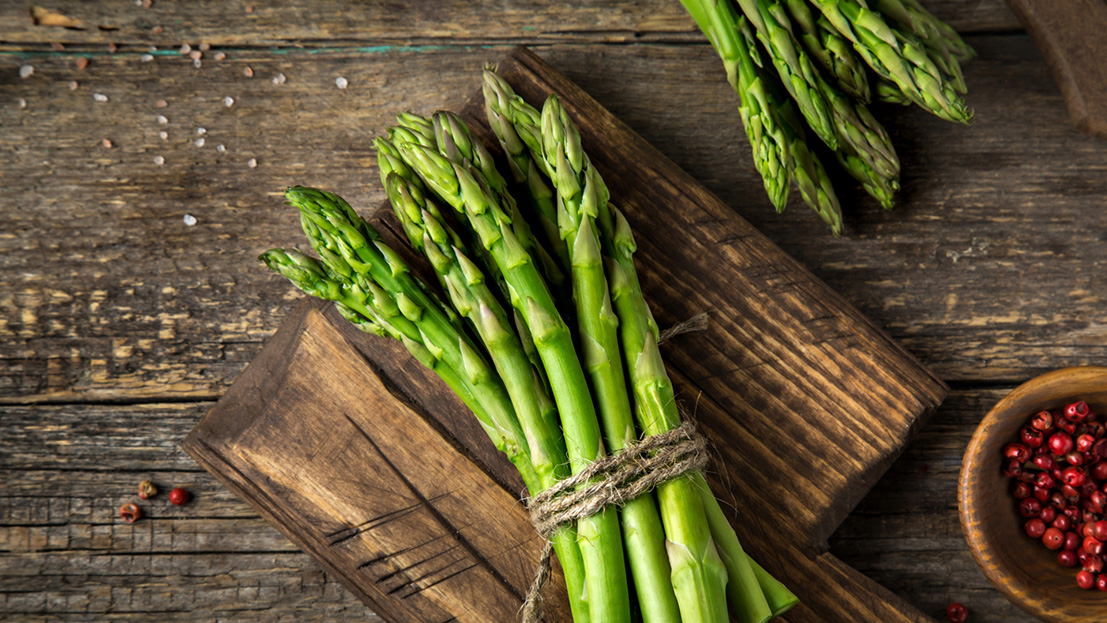
- Fun fact: Asparagus are a perennial plant that can grow up to two inches in one day.
- Asparagus is a member of the Asparagaceae botanical family which also includes agave and yucca root.
- Multiple varieties exist. Green or violet-green varieties are most commonly found in the U.S. White asparagus is also available but may not be as common.
Nutrition
- Asparagus is naturally cholesterol free and low in calories and fat. It is an excellent source of vitamin K and folate, and a good source of copper, riboflavin, and thiamin.
- Vitamin K is important in blood clotting and bone building.
- Folate is used to create DNA and other genetic material. Adequate folate intake is essential for women who plan to become pregnant as it reduces the risk of neural tube defects.
- Copper is an antioxidant that supports bone formation, energy production and iron metabolism.
- Riboflavin is essential for growth and red blood cell formation.
- Thiamin helps our bodies convert the carbohydrates we eat (grains, vegetables, fruits, milk) into energy the body uses for daily living.
How to Purchase, Prepare, and Store
- Purchase fresh, frozen or canned at your local grocers. In the United States, asparagus season is typically March through June. Visit your local farmers market this spring to find freshly harvested asparagus.
- Select asparagus spears that are firm but tender. The tips should be compact and closed. Avoid spears that are limp, wilting, blemished or those in which the tips are flowering. Always check the ends of the asparagus spears to ensure they are moist; avoid those that look cracked or woody.
- Asparagus is best eaten when it is freshly picked, but can be stored in the refrigerator for up to five days. Place a damp paper towel around the ends of the asparagus and place in a paper bag in the crisper drawer to extend the quality if you are unable to consume right away.
- Prepare by rinsing under cold water and cutting an inch off the stem, then steam, boil, roast, grill, sauté, or eat raw.
Nutrition Facts
1/2 cup cooked, boiled, drained asparagus
- Calories: 19.8
- Protein: 2.16 g
- Fat: 0.19 g
- Carbohydrate: 3.70 g
- Fiber: 1.8 g
- Sugars: 1.17 g
- Calcium: 20.7 mg
- Magnesium: 12.6 mg
- Potassium: 202 mg
- Folate: 134 µg
- Vitamin A: 45 IU
- Vitamin K: 45.5 µg
1/2 cup raw asparagus
- Calories: 13.4
- Protein: 1.47 g
- Fat: 0.08 g
- Carbohydrate: 2.6 g
- Fiber: 1.40 g
- Sugars: 1.26 g
- Calcium: 16.1 mg
- Magnesium: 9.4 mg
- Potassium: 135.5 mg
- Vitamin C: 3.75 mg
- Folate: 34.85 µg
- Vitamin A: 25.45 IU
- Vitamin K: 27.85 µg
Source: fdc.nal.usda.gov
Recipes
Request an Appointment
